The European continent is being swept by a deadly undercurrent. Germany, the UK, and France are trapped in political deadlock, economic stagnation, and social division, with street protests and parliaments equally engulfed in turmoil.
Germany is plagued by endless political disputes, France’s streets are filled with rage, and the UK teeters on the edge of social fracture.
Once a model of order, Europe is now in disarray. Is the continent heading for total collapse?
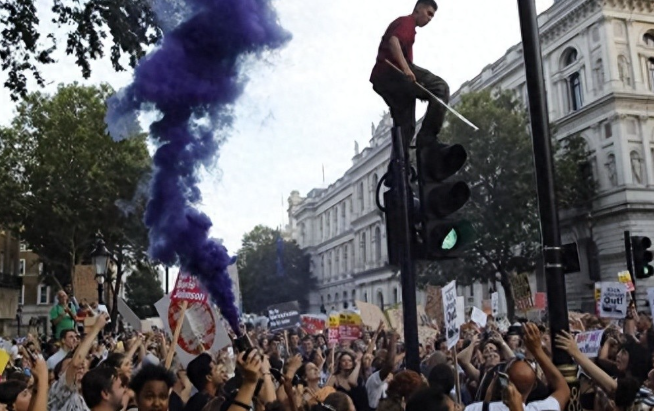
The Streets Become the Only Parliament
Europe appears gripped by an uneasy undercurrent. Chaotic scenes unfold one after another: smoke over Paris streets, crowds clashing in London squares, and endless quarrels inside Berlin’s parliament. Europe is staging a deeply unsettling drama.
The public’s anger is erupting in two forms: traditional struggles over livelihood and a more intractable identity crisis. Yet both point to one fact: the social order is being openly torn apart.
In France, over half a million workers took to the streets. This was no mild petition—their anger was ignited by the government’s austerity budget, especially a proposal to abolish two public holidays, seen as a direct assault on workers’ rights.
Chants demanding President Macron’s resignation rang out as transport, education, and other public services came to a standstill. Across the Channel, the UK saw a similar scene: waves of strikes organized by unions, paralyzing border checks and subways. Their demand was simple: wages that keep pace with soaring living costs.
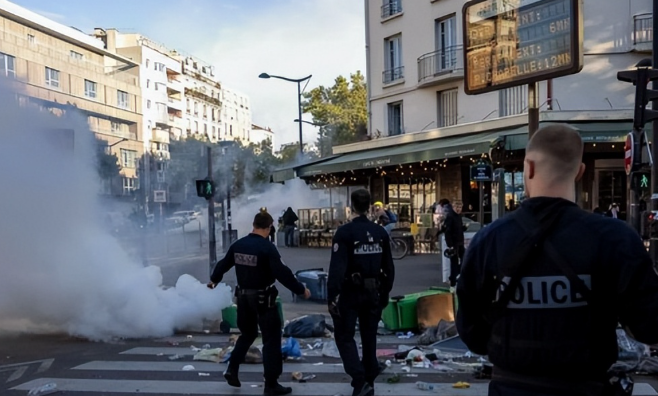
If economic grievances are the old script, then the rise of identity politics is the new problem. In September, London witnessed a mass protest of over 100,000 people, split into two irreconcilable camps.
One side, anti-immigration groups, accused the government of wasting taxpayer money on migrants and demanded parliament be dissolved. The other side, anti-racism activists, countered fiercely, calling for protection of minority rights. Neighbors turned into enemies, and the protest spiraled into a three-way clash between both camps and the police.
In Germany, the fracture took a more unsettling form. The far-right AfD party surged in popularity, especially in regions lagging in economic transition.
But just before the state election in North Rhine-Westphalia, shocking news emerged: seven AfD candidates died within a short period. Officials claimed five died of illness, one of natural causes, and one by suicide. Instead of calming the public, this explanation fueled conspiracy theories.
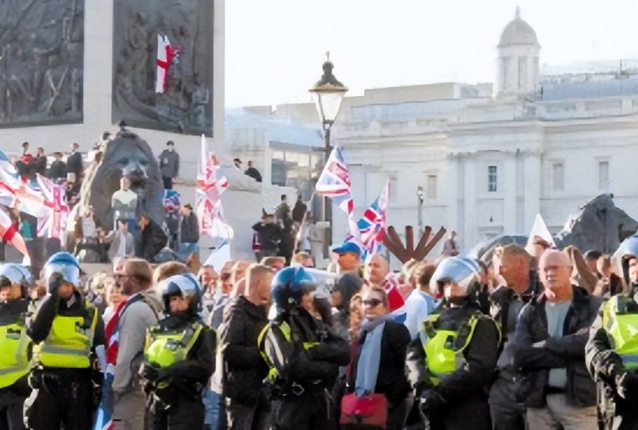
Protests broke out across Germany demanding a full investigation. Trust in state institutions plunged to a new low.
A Power Machine Stuck in Neutral
The anger in the streets has been mirrored in politics, leaving governments paralyzed and parliaments deadlocked.
In Germany, elections created an unprecedentedly fragmented landscape. Traditional parties weakened, the far-right disrupted old balances, and coalition negotiations became painfully long. Political infighting crippled policymaking.
France fared no better. The ruling party lacks a stable majority, and any reform sparks political storms. One no-confidence vote forced the prime minister to resign, triggering a cabinet reshuffle. Prominent politician François Bayrou also stepped down in the chaos.
This fragile power dynamic left the government stuck: unable to satisfy demands for more welfare, yet incapable of implementing fiscal discipline—alienating both sides.
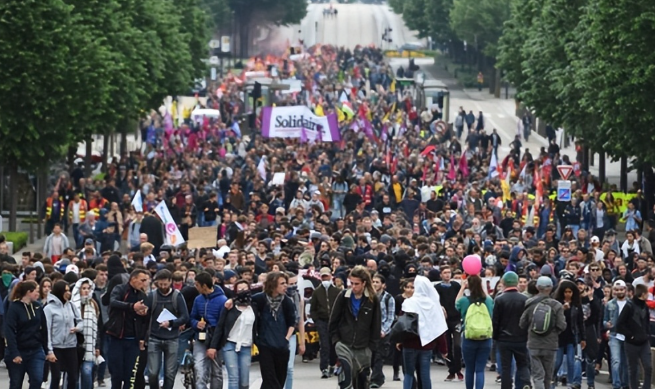
Meanwhile, the UK government is dancing on the edge of a fiscal cliff. Borrowing figures shattered expectations, exposing a massive budget shortfall. Debt interest payments ballooned, swallowing scarce resources.
Yet politicians failed to address citizens’ pain over living costs, housing, and healthcare. Instead, they resorted to bickering and blame-shifting.
A vicious cycle emerged: government paralysis deepened public despair, pushing citizens toward radical street action. The unrest then further eroded state legitimacy, making reforms even harder to pass.
The Complications Spread
The internal “illness” of Europe’s three core states—Germany, France, and the UK—is producing dangerous complications, weakening the EU’s capacity to act and its global influence. Europe faces the real risk of marginalization.
The first casualty is EU decision-making. Germany’s paralysis prevents Berlin from leading reforms, while France’s instability delays progress on defense integration and migration policy.
Markets are also reacting. France’s sovereign bond risk premium is rising, signaling investor fears. The British pound remains under pressure from fiscal woes. Businesses hesitate to invest, fearing Europe’s uncertain future.
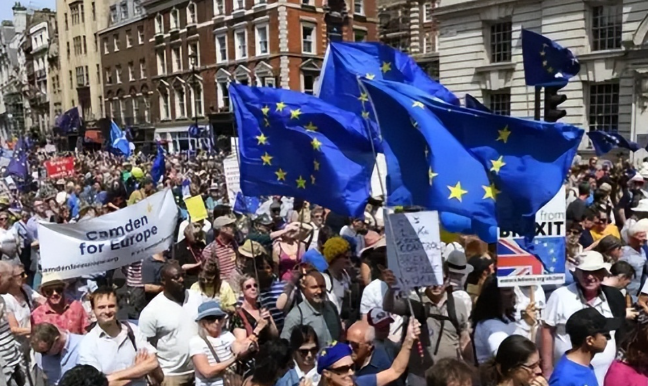
Internally weak, Europe also struggles externally. Domestic pressures make unified stances on Ukraine aid increasingly difficult. Fiscal limits and social tensions drain national strength.
Worse, the unrest is not confined to the “big three.” Protests have erupted in Poland, Italy, and Switzerland. Some observers even warn that today’s turbulence resembles the tense atmosphere before the two World Wars.
Of course, Europe will not collapse overnight. But this turmoil is unlikely to be short-lived. For years to come, instability may be Europe’s new normal. Whether it can emerge reborn from this crisis remains to be seen.



